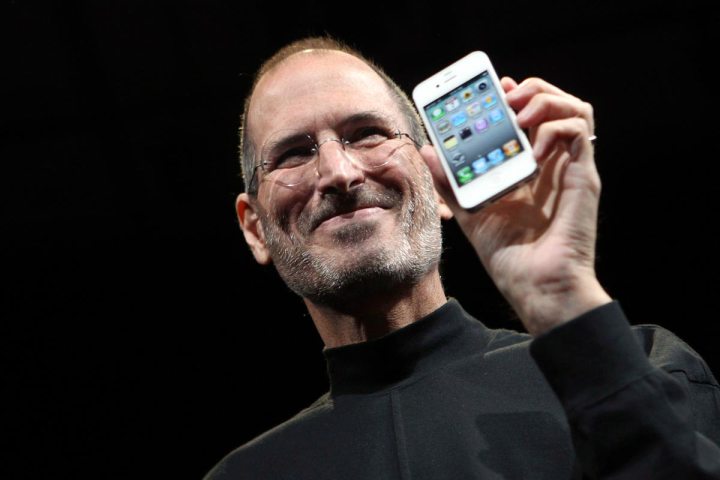
“We’ve always had a very different view of privacy from some of our colleagues [in Silicon Valley],” said Jobs at the D8 conference in 2010. “We take privacy extremely seriously.” He illustrated this point using the example of a teenager being stalked via location data recorded by their phone, obviously just one part of a broader picture.
“Privacy means that people know what they’re signing up for — in plain English, and repeatedly.”
User data is a powerful commodity in the information age, whether its being sought out by the FBI to assist in an investigation into domestic terrorism, or collected by Facebook to facilitate targeted ads. Jobs was well aware that privacy would be a crucial issue as smartphone usage became as widespread as it is today.
“Privacy means that people know what they’re signing up for — in plain English, and repeatedly,” Jobs responded when asked whether a move towards cloud-based storage meant compromising on user privacy at the 2010 conference. “Let them know precisely what you’re going to do with their data,” he continued.
In the years since Jobs passed, there have been plenty of people eager to predict doom for Apple — but the man himself would have had little time for such naysaying. “This is not a one-man show,” read a quote from Jobs that was published in BusinessWeek shortly after his 1997 return to the company.
Apple’s Chief Design Officer Jonathan Ive has been a fixture at the company since the 1990s, and as such has been able to successfully maintain and develop its now-familiar aesthetic. However, if there’s anyone tasked with inheriting the forward-facing role that Jobs filled so well, it’s undoubtedly CEO Tim Cook.
It’s a matter of personal opinion whether Cook has the same charisma and energy that Jobs certainly did. That being said, there’s more to the job at hand than simply being an engaging presence at the many keynotes and conferences Apple holds in a calendar year. Many of the Apple faithful are looking for a shepherd to lead the flock.
By publishing a public response to the FBI’s requests last week, Cook made important progress towards filling the shoes left by Jobs. Call it a marketing move if you must, but the statement being made certainly calls to mind the Apple ethos its former CEO helped establish, just as its famous 1984-inspired Super Bowl commerical did.
Looking at Apple almost five years on from the death of its talismanic leader, in some respects it’s clear that the company is still in recovery. However, its current dispute with the FBI is being handled with the consideration and responsibility that users came to expect from Jobs’ time at the helm.
Apple found success in the computing industry by making unfamiliar products and services accessible to the entire breadth of potential users. Now, its not the basics that its audience needs assistance with, it’s much more complicated matters of security and data protection, among other issues.
Steve Jobs had a great understanding of the importance of a user-friendly product — not just in terms of streamlined interfaces and simplified hardware options, but in ensuring that devices are an asset to that user, not a method of exploitation. The man may have passed, but recent events would seem to demonstrate that this line of thinking lives on in Cupertino.


